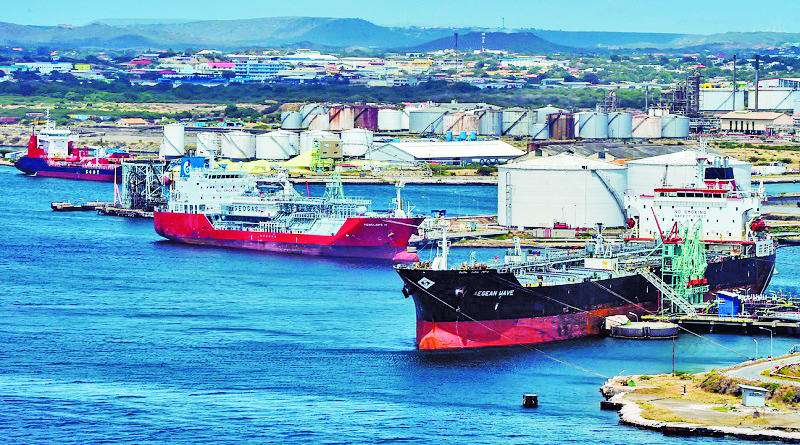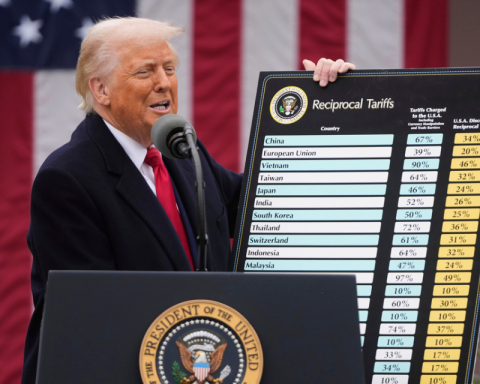Throughout the planet there are 30 countries sanctioned by the United States. The motivations may appear to be very different, and range from the declaration of independence, to the exercise of self-determination and to the construction and practice of their own political models.
The constant of these countries to which unilateral coercive measures have been applied, a euphemism used to apply the sanctioning and restrictive measures of the full exercise of the rights established in the international legal framework, is the non-subordination to foreign policy or to the lines Washington Economics.
Thus, of those 30 affected countries, the sum of the population victim of these actions reaches 28% of the world population. Said in figures, there are more than 2,240 million people who must suffer the pain for not tolerating tutelage from any foreign government.
In the Venezuelan case, 928 sanctions have made Venezuelans crack to generate so much social unrest that, in a kind of express civil war, the people in the street reach a change of government and political model.
The set of measures applied mainly against public institutions, disconnect Venezuela from the commercial, economic and financial map, prohibiting access to medicines and food, among other necessary products and this directly and unequivocally impacts the population.
Thus, Venezuela occupies the sixth place with more public organizations and private companies sanctioned, adding 154 institutions. Ahead of Venezuela are Iran with 988, Russia with 339, Ukraine with 180, Syria with 177 and North Korea with 171 public and private institutions or organizations.
In Venezuela, Petróleos de Venezuela and all its subsidiaries and assets have been sanctioned; the public financial system including the Central Bank of Venezuela and the National Bank for Economic and Social Development (Bandes); the Venezuelan Corporation of Guyana; the Venezuelan Mining Corporation and the state airline, Conviasa.
The Bolivarian Republic of Venezuela has 69 sanctioned vessels that severely affect the sale and distribution of oil. 39 vessels fly the national flag and the rest are foreign. This places Venezuela as the fourth country with the most sanctioned vessels, after Iran (205), North Korea (106) and Russia (88).
The country is the second in the world with the most sanctioned aircraft, having measures against 58 aircraft, of which 57 are state property. The coercive measures include a ban on flying at a certain altitude in Venezuelan airspace.
All this set of measures affects the economic development of the nation, which ends up affecting the well-being of the people and their development possibilities.
In this sense, Alena Douhan, special rapporteur of the United Nations Organization on unilateral coercive measures, stated after her visit to Venezuela that “sanctions have prevented the income and use of resources from developing infrastructure and carrying out carry out social support programs; they have had a devastating effect on the entire population of Venezuela and have undermined the very foundation of social life and the enjoyment of human rights.”
Data
- Foreign currency income to the country was reduced by 99% when it went from 56,609 million dollars in 2013 to 743 million dollars in 2020 due to the economic blockade.
- 51.5% of the sanctions are against the State to affect all public operations and harm the population.
- 11% of the measures affect PDVSA as it is the country’s main source of income to suffocate the State.
- 2.2% punitive actions go against health to generate crises in the public system and health services
The sanctions generated unemployment and hunger

Despite the fulfillment of the Millennium Development Goals, many of these achievements in Venezuela were reduced by the sanctioning policy of the United States.
In the Venezuelan Anti-Blockade Observatory they affirm that “the relentless measures against Venezuela for more than seven years have had very harsh impacts on the country’s economy, the standard of living and the human rights of the Venezuelan population. We have all suffered the effects of the punishment and persecution of the economy and the Venezuelan State”.
“The blockade produced a reduction in foreign currency income, a drop in oil production, a closure to foreign trade, a weakening of the currency and capital flight,” they maintain.
As a consequence, “hyperinflation, scarcity of goods and services, closure of industries, migration, deterioration of the quality of life and well-being came. In short, unprecedented economic devastation,” they say.
“Emigration out of Venezuela is the consequence of suffocating sanctions that have directly led to unemployment and hunger. US sanctions are a crime against humanity under article 7 of the Rome Statute,” said Alfred de Zayas, a UN human rights expert.

















